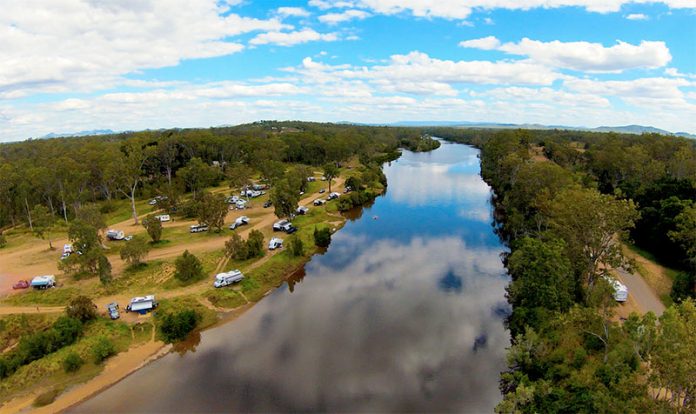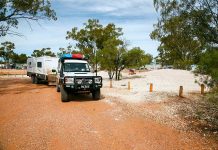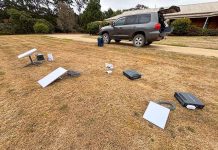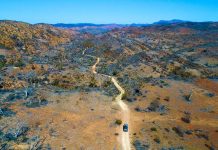If I think back to my early days of free camping, whether it was in a camper trailer or a caravan, making sure I had the ideal location and sufficient power and water were lessons I picked up pretty quickly. As I gained more experience, the less likely it was for these to be an issue.
What did start to trip me up, however, were the not-so-obvious aspects of free-camping, the sort of things you may never think about if you’re used to staying at caravan parks. In part 2 of our free-camping guide, we want to share with you some tips and tricks we’ve learnt for dealing with those little things you may not have overlooked.
THE TOILET
Many free-camps provide toilet facilities. Some will be more pleasant than others. Even so, if your caravan has an onboard toilet, you may still want to use it. There’s no nice way to put this but, if you have a cassette toilet, you could fill it up in a matter of a few days and, if there is no dump point nearby, it could cause you to end your stay a bit earlier than expected.
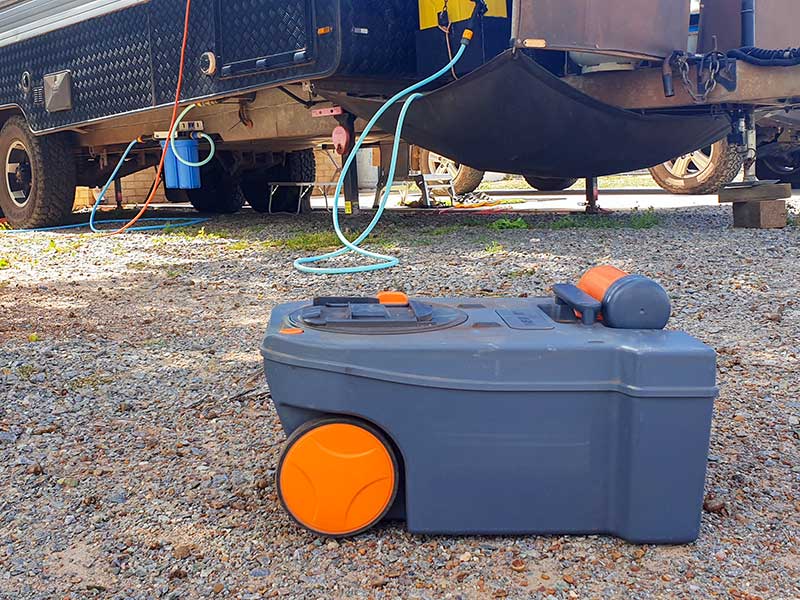
The simplest way to extend your stay is to carry a second cassette and effectively double the length of your stay. We wrap the full cassette in a large plastic rubbish bag to contain any spills and minimise odours while it’s being stored.
Another technique that we have used successfully is to avoid putting toilet paper into the cassette. Instead, we put the soiled paper into a lined rubbish bin and dispose of it separately. For some reason, we have had a few people express disgust with this but it isn’t as bad as it may seem. We use a nappy bag to line our bin. These have a slight perfume that eliminates any unpleasant odours.
If the idea of carrying a second cassette isn’t appealing, you might want to consider fitting a composting toilet. These are designed to go long periods between emptying so they are ideal for frequent, long-term free camping.
FOOD FOR YOUR STAY
I can imagine a lot of you are reading this thinking it’s obvious that you will need food for the duration of your stay. But consider, what are you going to cook? How are you going to cook it, remembering you’re off the grid with limited power? And if you forget something, it may not be a quick trip to the local supermarket to get it.
For us, the key is to meal-plan for the time we intend to be staying at the free-camp. This way, we can ensure we have all the ingredients we need for the meals we want to cook.
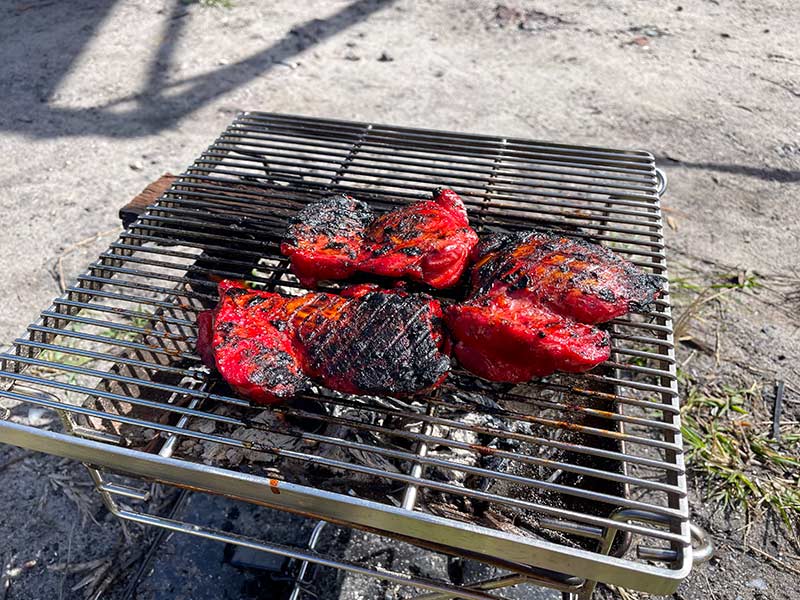
When it comes to meals, I like to keep it simple but tasty. As an example, I marinate meats and cook them over an open-flame grill. So I buy my meats, separate them into portions and bag them separately with the marinade of choice.
These are put into the freezer and defrosted when needed. Pork rashers, chicken thighs and even meatballs can all be prepared in this way days before you get to your free-camp. Once cooked, these can be served with a very simple Asian salad made from wombok cabbage, chopped spring onions and dressing.
Other meals can be made in sufficient quantities to allow you to use them as leftovers the next day. For instance, we love to put leftover pasta sauce or taco mince on baked potatoes for lunch.
I acknowledge that many caravanners will have limited freezer space and this can be an issue if you intend to stay at one location for a long period. Fortunately, this doesn’t have to be a problem thanks to the availability of long-life meals sold at all the major supermarkets. These are vacuum-packed and pre-cooked so they last for weeks in your fridge.
Another good idea, if you have limited freezer space, is to run your car fridge as a freezer. Keep in mind that running your car fridge in this way will deplete your batteries a bit quicker, depending on the ambient temperatures.
KEEPING THINGS GOING
As a general rule, we recommend travellers have the ability and knowledge to fix most minor issues themselves. After all, caravans are homes on wheels so things are likely to fail and break from time to time. However, when you’re free-camping, being able to diagnose and fix issues with your gear is almost essential.
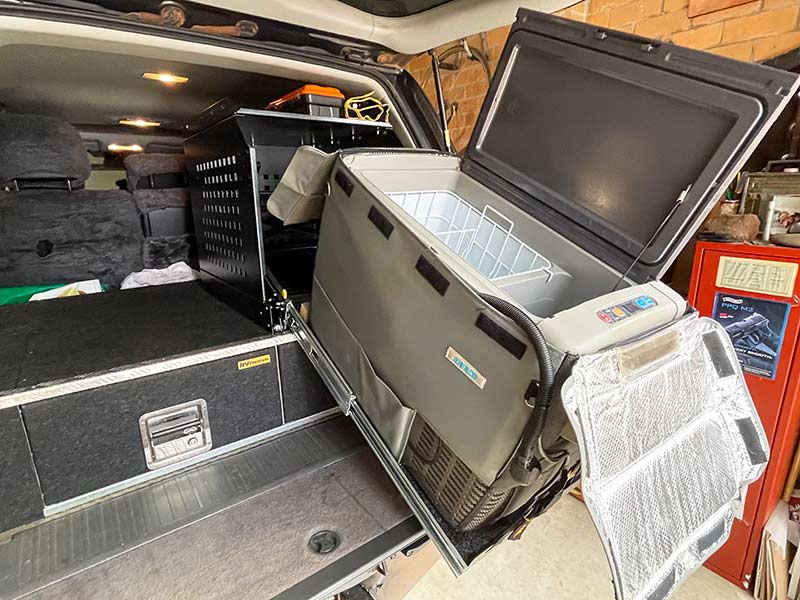
Free-camping for extended periods will push your gear to its limits, particularly your caravan’s electrical system. To give you an example, we were camped out at Cleaverville, WA, when I noticed our car fridge wasn’t working properly. I thought it might have been the battery but it was showing full charge. There was another issue somewhere in the wiring. By systematically tracing back along the wiring, I found a dodgy inline fuse that had deteriorated and was causing resistance in the power. The temporary solution was to simply replace the fuse but a better fix was to re-wire the power with better quality components.
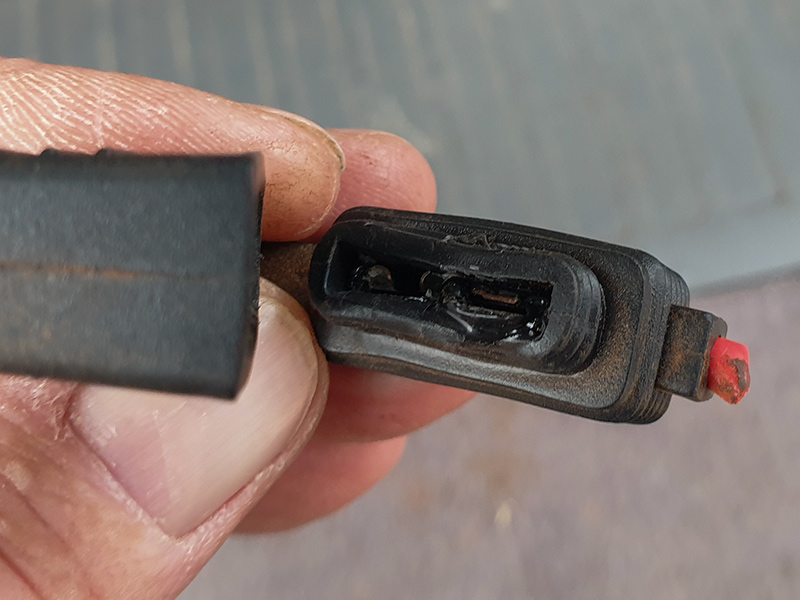
That leads me to my next bit of advice. It’s great to have the skills and tools necessary, but if you don’t have the spare parts required to fix the issue, all that knowledge is pretty much useless. You don’t have to carry enough gear to fill a Bunnings store, but enough to get you out of trouble. An assortment of nuts, bolts and screws, electrical connectors and wiring, some John Guest fittings and thread tape, wire ties, duct tape, and a few other odds and ends will be enough to get you out of trouble in most circumstances.
SITUATIONAL AWARENESS WHEN FREE-CAMPING
One of the main attractions of free-camping is getting away from the big cities and finding an isolated camp without all the crowds. The problem is that you may not have access to things like the internet, mobile phone networks or even television, where you might get a warning of a change in the weather or some form of natural disaster, such as a wildfire or flooding heading your way. This is why I always recommend you have with you some form of link back to civilisation.
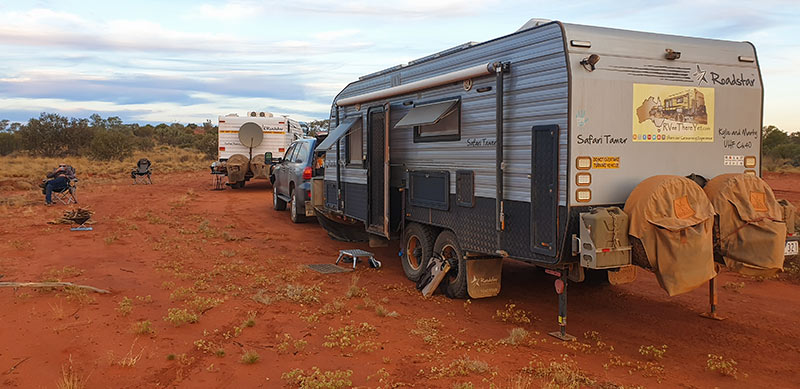
Satellite-based communications such as Starlink or VAST television are great for keeping in touch with the outside world, from anywhere in the country, but they can be expensive. Text-based global communicators, such as ZOLEO, are much cheaper and still enable you to contact the outside world via text messages. They can even access local weather forecasts.
But if none of these are desirable, consider carrying a simple battery-powered AM/FM transistor radio as part of your kit. These can pick-up local radio broadcasts, often across great distances.
JUST GET OUT THERE AND DO IT
Now that you have all this newfound knowledge, the final suggestion we have is to get out there and give free-camping a go. Perhaps start by looking for a campsite close to a town, or even a non-powered site in a caravan park, and plan to stay for no more than a week.
This will allow you to try out your gear without pushing it to the extreme, and have the fallback of going to more familiar surroundings.
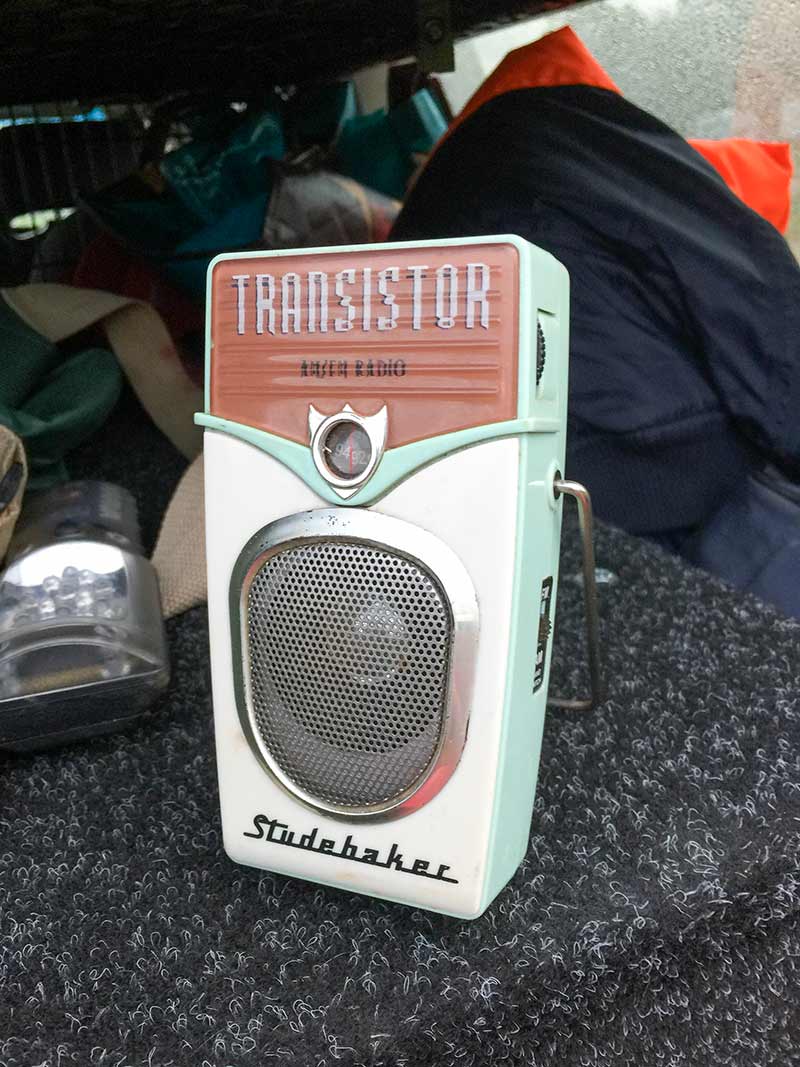
Once you’ve mastered stays of this duration, you can be more adventurous and stay longer in more remote locations.
Once you gain confidence in both your gear and your capabilities, I guarantee you that free-camping will be lots of fun and open up many more holiday experiences.
FREE-CAMPING TIPS
Tip 1: If you have an Apple Watch, you can set it up to be a valuable tool for free-camping. I have mine configured to show a compass to determine where north is, sunrise and sunset times, and a UV radiation forecast for the week ahead. All are essential for maximising solar recharging.
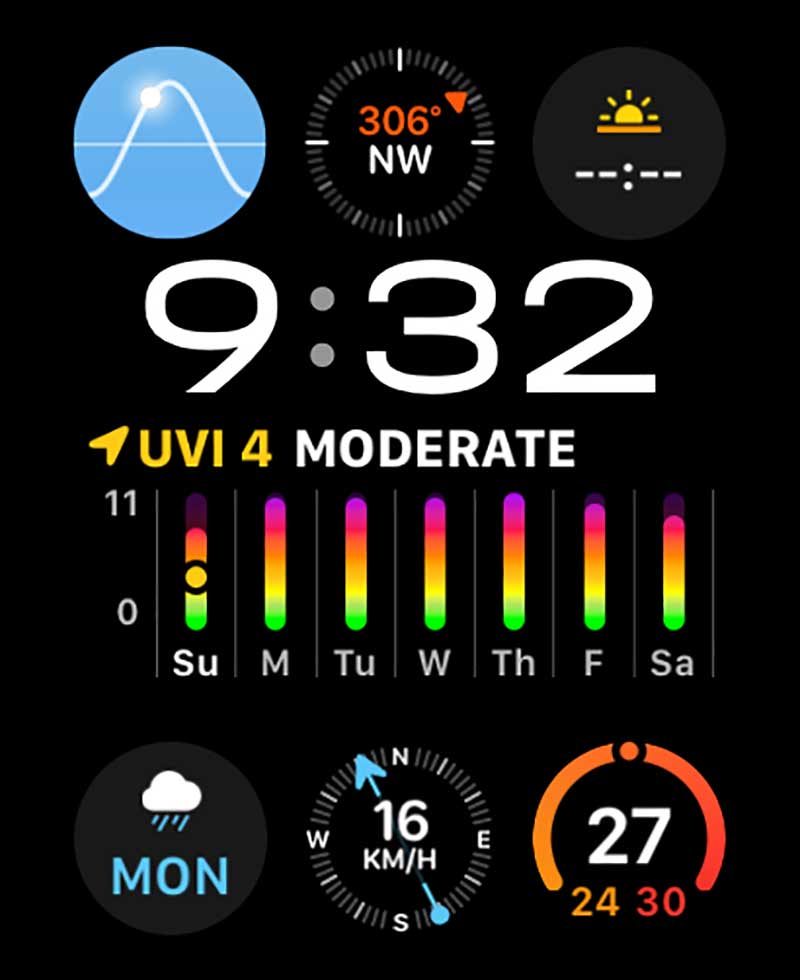
I also have forecasts for rain, wind and temperature all on the same face so I can see at a glance if I need to roll in the awning or store my camp chairs out of the rain well before it arrives.
Tip 2: Keeping food fresh can sometimes be a challenge, especially when free-camping. Fortunately, some very clever people have shared their food storage secrets on the internet.
For example, if you want to keep strawberries fresh, take them out of the plastic container they come in and put them in a glass jar with the lid on. Also, you can keep most green veggies, such as lettuce and celery, fresh by wrapping them up in aluminium foil.
Tip 3: There’s a saying: plan for the worst and hope for the best. When free-camping, we always have a redundancy for all of our vital functions. These include a back-up source of power should our battery system fail, the ability to cook on an open fire should we run out of gas, and we carry a couple of jerry cans to store water should our van’s tanks get a leak.


